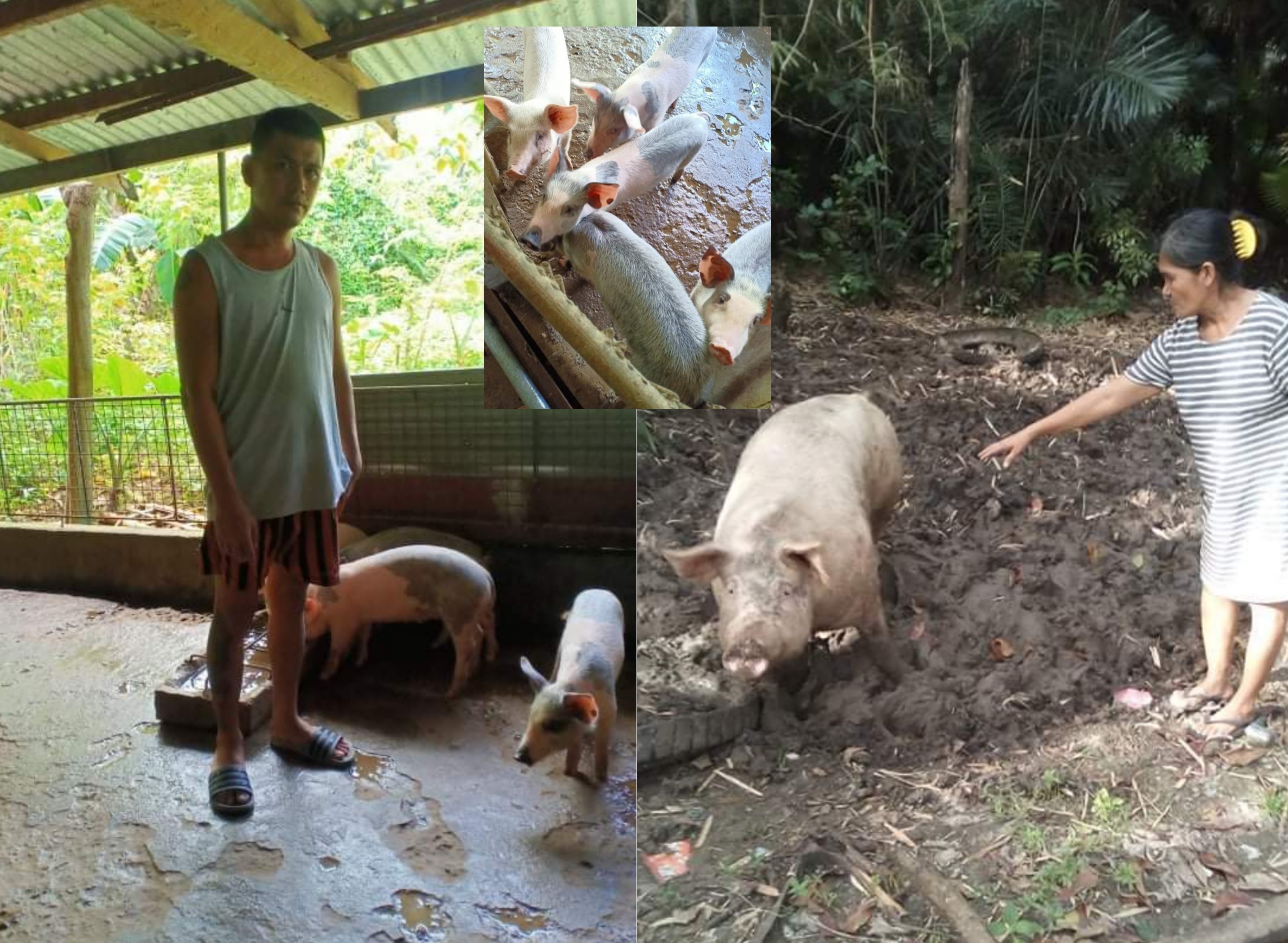Barangay San Juan is one of the largest barangays by land area and population in San Narciso, Quezon Province. This agricultural locale has 2,500 residents with fisheries, farming, and animal husbandry as their primary sources of revenue. Barangay San Juan is accessible by land and sea.
Most of the residents are hog raisers. That is why their neighbourhood was among those afflicted when African swine fever (ASF) struck the country. The first occurrence of African swine fever (ASF) was in 2019. The Department of Agriculture (DA) reports that in March 2019, there were documented active cases in two regions, four provinces, seven municipalities, and 20 barangays. The country's swine business has been impacted by the highly contagious ASF over the past few years, which has impeded the expansion of the agriculture sector.
The catastrophe caused the livestock farmers to suffer financial losses and the loss of their means of subsistence. In response to this dreadful event, the LGU provided financial assistance to the hog raisers. Due to the loss of their domestic pigs, some of the affected livestock farmers planted corn and rice as their temporary sources of income. The gradual control of the spread of ASF has become a good sign for the swine industry. It led to some farmers resuming the practice of raising pigs.
The LGU has guided the farmers through training and provided them with some medicines and vitamins for their hogs and piglets. The LGU intended to assist the hog farmers in restarting the swine sector, but sadly some farmers lack the necessary funds. The barangay officials of San Juan requested a project appeal to assist these deserving and skilled hog raisers in getting back into the business. The target beneficiaries of this project are the people of Barangay San Juan, especially those whose livelihood pertains to animal husbandry. It will benefit those who can raise domestic animals.
This initiative intends to assist farmers by providing them with hogs to raise. The local government will guide the chosen beneficiaries through adequate domestic animal training. Through this project, the beneficiaries will have a fresh start and improve their way of life.
Help the livestock farmers in barangay San Juan in San Narciso, Quezon Province, affected by African swine fever (ASF), get back into the swine business again.
San Juan, San Narciso, Quezon Province
Livelihood Development, Opportunities, Food Suffieciency

Project Details:
This initiative intends to assist farmers by providing them with hogs to raise. The beneficiaries of this project will have a fresh start and improve their living conditions.
Total Cost: Php 123,171.00
Donation Code: LivelihoodSanJuanQP
Methods of Giving:
Php
PHP 0.00
PHP 123,171.00
How to donate via Bank Transfer:
Donation Code: LivelihoodSanJuanQP
Donation Code: LivelihoodSanJuanQP
From your online bank account, you may donate the following bank details:
BRANCH OF THE BANK
Bank of the Philippines - Edsa Greenhills
Bank of the Philippines - Edsa Greenhills

ACCOUNT NAME
Gawad Kalinga Community Development Foundation, Inc.
Gawad Kalinga Community Development Foundation, Inc.
ACCOUNT NO.
PHP CURRENT
3101 0977 56
US$ SAVINGS
3104 0162 34
SWIFT CODE: BOPIPHMM
PHP CURRENT
3101 0977 56
US$ SAVINGS
3104 0162 34
SWIFT CODE: BOPIPHMM
Important Note:
Take a screenshot of your payment
and send proof of transaction
along with donation code to
secretariat@bwi.ph
How to donate via E-Wallet:
Donation Code: LivelihoodSanJuanQP
Donation Code: LivelihoodSanJuanQP
Scan the QR Code from any of the E-wallet accounts of Gawad Kalinga:
Paymaya


ShopeePay


Gcash


JustPayto


Important Note:
Take a screenshot of your payment
and send proof of transaction
along with donation code to
secretariat@bwi.ph